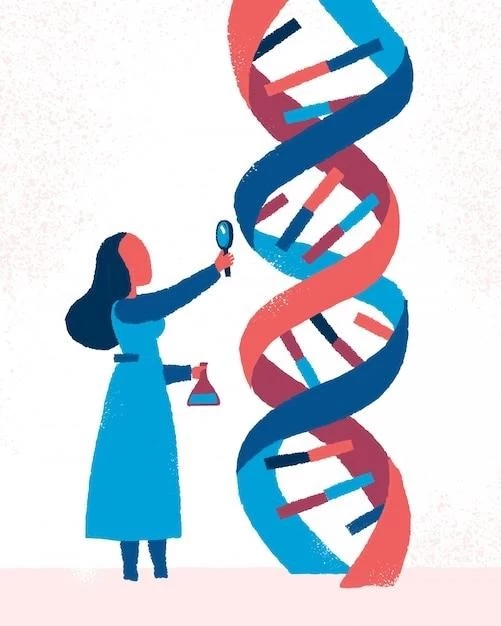The genetic causes of Chromosome 20 duplication involve
abnormalities in the DNA structure of the chromosome․
Overview of Chromosome 20 Duplication
Chromosome 20 duplication refers to an extra copy of genetic material on chromosome 20․ This condition can lead to a variety of physical and developmental challenges due to the presence of additional genes․
Genetic Mechanisms behind 20p Duplication Syndrome
The duplication of the short arm (p) of chromosome 20 can occur spontaneously or be inherited․ Genetic mechanisms include errors in cell division or rearrangements during meiosis․ These duplications can vary in size and location٫ impacting the expression of genes essential for normal growth and development․
Symptoms and Diagnosis of Duplication 20p Syndrome
Identifying symptoms and diagnosing 20p duplication involve
comprehensive medical evaluations and genetic testing․
Common Symptoms Associated with 20p Duplication
Individuals with 20p duplication may experience symptoms such as developmental delays٫ intellectual disabilities٫ speech and language impairments٫ behavioral issues٫ and distinctive facial features․ Additional manifestations could include seizures٫ heart defects٫ and growth abnormalities․
Diagnostic Procedures for Identifying 20p Duplication Syndrome
Diagnostic procedures for 20p duplication syndrome may involve chromosomal microarray analysis, fluorescence in situ hybridization (FISH), and specific genetic testing to detect duplications on chromosome 20․ Clinical evaluations by geneticists, pediatric neurologists, and other specialists play a crucial role in confirming the diagnosis․

Treatment Options for Chromosome 20 Duplication
Treatments aim to manage symptoms and improve quality of life․
Medical Interventions for Managing Symptoms
Medical interventions for managing symptoms of Chromosome 20 duplication may include early intervention services, speech therapy, occupational therapy, behavioral therapies, and medications to address specific health issues like seizures or heart abnormalities․ Multidisciplinary care plans are essential to provide comprehensive support based on individual needs․
Supportive Care and Therapies
Supportive care and therapies for individuals with Chromosome 20 duplication encompass special education services, social support programs, genetic counseling, and tailored interventions to promote adaptive skills and independence․ Physical therapy, sensory integration therapy, and access to community resources play vital roles in enhancing overall well-being and development․
Prognosis and Long-Term Outlook for Individuals
Understanding the prognosis and long-term outlook․
Lifespan and Health Challenges
Individuals with 20p duplication may face variable health challenges
that can affect lifespan and require ongoing medical monitoring․
Factors Influencing Prognosis
Factors influencing the prognosis of individuals with 20p duplication
include the extent of genetic abnormalities, associated health conditions,
access to early interventions, and family support systems․
Research Advances in Understanding Duplication 20p
Exploring recent scientific studies and discoveries․
Current Scientific Studies and Discoveries
Ongoing research on Duplication 20p syndrome focuses on
identifying key genes, understanding molecular mechanisms, and
developing targeted therapies to address associated challenges․
Future Directions in Genetic Research
Future genetic research directions aim to uncover novel
therapeutic targets, refine diagnostic approaches, and enhance
our understanding of the impact of gene expression in Duplication 20p syndrome․
Support and Resources for Families Affected
Exploring available support services and resources․
Family Support Groups and Organizations
Family support groups and organizations provide valuable
connections, emotional support, information sharing, and advocacy
opportunities for families affected by Chromosome 20 duplication․
Counseling and Mental Health Support
Counseling and mental health support services offer emotional
wellness, coping strategies, and guidance for individuals and
families navigating the challenges of Chromosome 20 duplication․
Neurodevelopmental Challenges Associated with 20p Duplication
Exploring the neurodevelopmental challenges in 20p Duplication․
Cognitive and Behavioral Impacts
Individuals with 20p Duplication may experience cognitive
impairments, behavioral challenges, learning difficulties, and
variations in social interactions due to genetic differences․
Strategies for Addressing Neurodevelopmental Needs
Effective strategies for addressing neurodevelopmental needs in
20p Duplication include early interventions٫ specialized education٫
behavioral therapies, and individualized support plans tailored to each person’s strengths and challenges․
Prevalence and Incidence of Duplication 20p Syndrome
Examining the prevalence and incidence of Duplication 20p․
Global Occurrence and Demographics
Duplication 20p syndrome demonstrates a diverse global
occurrence, affecting individuals of various ages, ethnicities, and
geographic locations, with differing levels of awareness and access to resources․
Challenges in Accurate Diagnosis and Reporting
Challenges in Duplication 20p diagnosis and reporting stem from
variations in symptoms, limited awareness among healthcare
providers, and the complexity of genetic testing methods․
